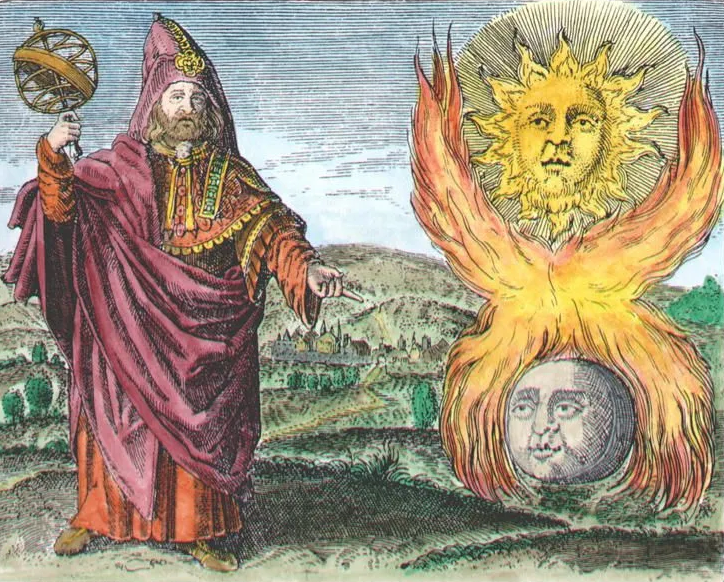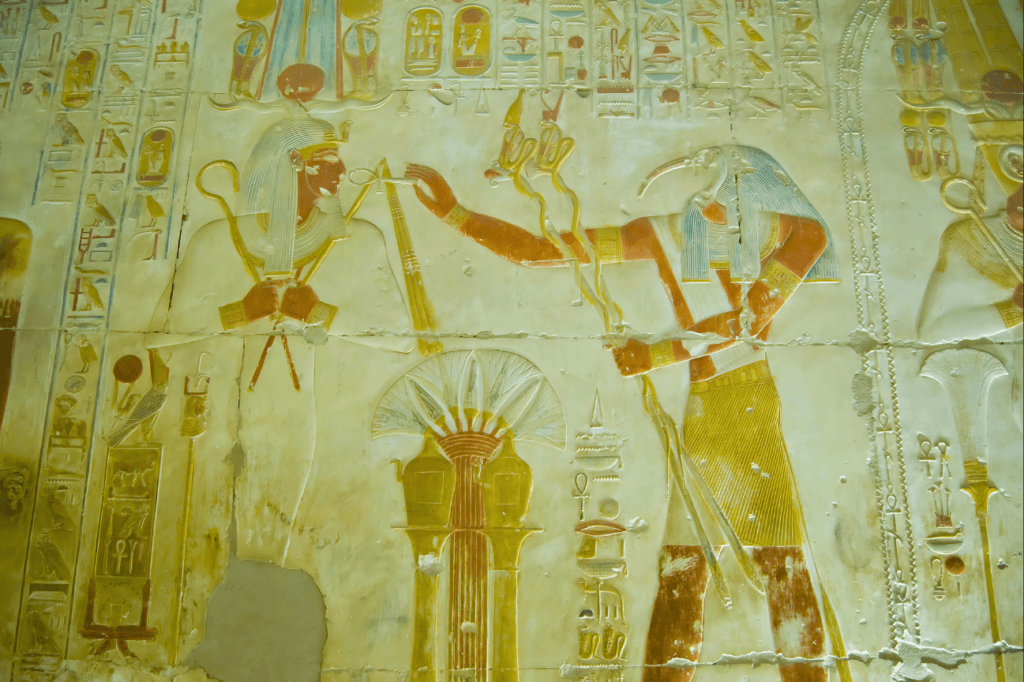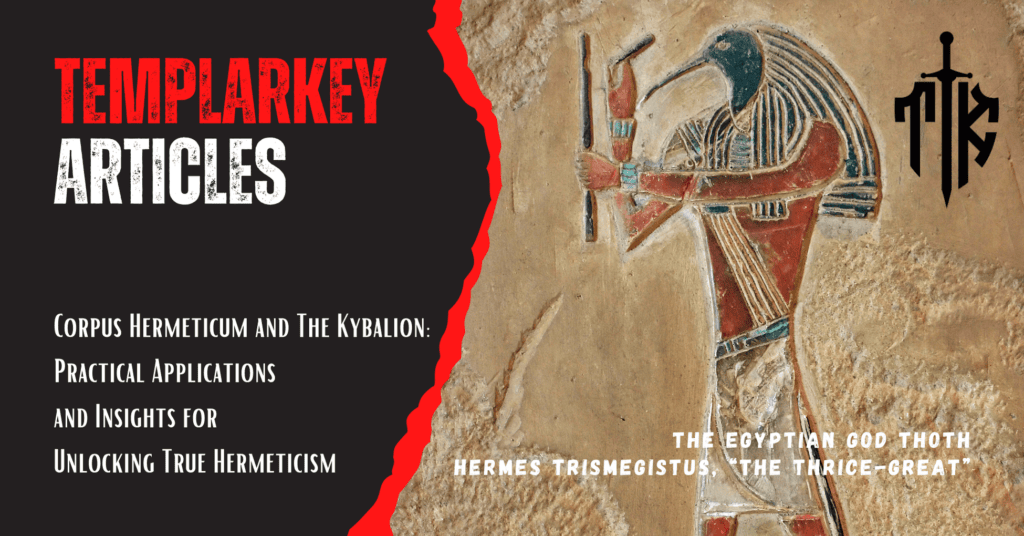Corpus Hermeticum and The Kybalion: Practical Applications and Insights for Unlocking True Hermeticism
The Corpus Hermeticum, a foundational collection of Hermetic texts attributed to Hermes Trismegistus, offers a profound and authentic exploration of esoteric philosophy. Unlike The Kybalion, which condenses Hermetic ideas into seven simplified principles, the Corpus Hermeticum delves deeply into the mystical and philosophical aspects of reality. By examining these ancient writings, seekers can uncover a richer, more nuanced understanding of universal laws and practical applications grounded in true Hermetic wisdom.

The Corpus Hermeticum: A Gateway to Ancient Wisdom
Dating back to the 2nd and 3rd centuries CE, the Corpus Hermeticum is a collection of dialogues and treatises that explore the divine, the cosmos, and the nature of humanity. These texts are deeply rooted in the Hellenistic blending of Egyptian, Greek, and Gnostic thought, providing insights into metaphysical concepts such as divine unity, the role of the Logos (universal reason), and the spiritual ascent of the soul.
One of the most famous texts in the collection, the Poimandres, opens with a vision of divine enlightenment, where the narrator is guided by a divine mind to understand the structure of the universe and the spiritual transformation of humanity. Unlike the pragmatic tone of The Kybalion, the Corpus Hermeticum immerses the reader in symbolic language and allegorical wisdom, encouraging introspection and contemplation rather than offering a step-by-step guide.
Practical Applications from the Corpus Hermeticum
While ancient Hermetic texts are often considered esoteric and abstract, they offer profound practical insights for those willing to engage deeply with their teachings. Here’s how to implement the wisdom of the Corpus Hermeticum in everyday life:
- Contemplative Practice and Meditation: The Corpus Hermeticum emphasises the importance of nous (divine intellect) and inner awakening. Regular meditation on the unity of all existence can help practitioners cultivate a sense of divine presence and interconnectedness. For example, reflecting on passages like “God is the All; the All is God” (Corpus Hermeticum, Book I) can guide seekers to a state of spiritual alignment and inner peace.
- Understanding Divine Unity in Daily Interactions: Hermetic thought teaches that the material and spiritual realms are interconnected, urging readers to see the divine spark in all beings. By practising empathy and recognising the sacred in others, one can embody the Hermetic principle of divine unity.
- Spiritual Ascent Through Knowledge and Virtue: The Corpus Hermeticum outlines a path of spiritual ascension through the cultivation of virtue, self-knowledge, and understanding of the cosmos. Rather than focusing on external achievements, practitioners are encouraged to align with higher principles by seeking wisdom, exercising humility, and embracing the divine plan.
- Studying Sacred Texts and Symbolism: Hermetic philosophy invites seekers to study sacred texts, symbolism, and the natural world as reflections of divine truth. Therefore, this aligns with the principle that “As above, so below,” found in the Emerald Tablet, another key Hermetic text. The process of interpreting these symbols fosters critical thinking and a deeper connection to the divine order.

The Philosophical Depth of the Corpus Hermeticum
Unlike the straightforward approach of The Kybalion, the Corpus Hermeticum requires readers to grapple with its philosophical depth. Central themes include:
- The Divine and the Cosmos: The texts explore the unity of the cosmos and its origin in the divine mind. Understanding this unity can inspire awe and encourage alignment with universal laws.
- The Human Soul and Spiritual Ascent: The Corpus Hermeticum teaches that the soul’s purpose is to transcend the material world and reunite with the divine source. This journey involves shedding ignorance, embracing virtue, and seeking divine wisdom.
- The Logos as Mediator: The role of the Logos (universal reason or divine word) is central to Hermetic philosophy. The Logos is both the creative force behind the cosmos and the bridge between humanity and the divine, emphasising the importance of rational understanding in spiritual practice.
These themes challenge you to transcend superficial interpretations of Hermetic principles and engage with your transformative potential.
Corpus Hermeticum and The Kybalion: Hermes Trismegistus
Hermes Trismegistus and the Corpus Hermeticum vs. The Kybalion and Esotericism: The Kybalion has often been critiqued for not being “True Hermeticism”.
“Hermes Trismegistus speaks to the seeker through veiled allegory and divine mystery, offering not a handbook for self-help but a profound initiation into the metaphysical nature of reality. In contrast, modern adaptations such as The Kybalion dilute this sacred wisdom, reducing it to a formulaic system of mentalism and universal laws that, while practical, fail to capture the true esoteric spirit of Hermeticism.” Antoine Faivre, The Eternal Hermes: From Greek God to Alchemical Magus.
Hermes Trismegistus, often referred to as “the thrice-great,” is the Greek interpretation of the Egyptian god Thoth, a deity associated with wisdom, writing, and knowledge. In Egyptian mythology, Thoth was revered as the scribe of the gods, a divine figure who governed the laws of the cosmos, time, and sacred texts. When Egyptian culture intersected with Hellenistic thought during the Ptolemaic era, Thoth was syncretized with Hermes, the Greek god of communication, invention, and esoteric knowledge. This fusion created Hermes Trismegistus, a figure who embodied the wisdom and mystical attributes of both deities. He became the symbolic source of the Hermetic writings, a body of work exploring the divine, the nature of the cosmos, and humanity’s spiritual ascent.

The Hermetic writings attributed to Hermes Trismegistus, particularly the Corpus Hermeticum and the Emerald Tablet, serve as foundational texts in Western esotericism. These works are not literal accounts authored by a single historical figure but rather a collection of dialogues and revelations compiled by anonymous philosophers and mystics. The texts emphasize themes of divine unity, the interconnectedness of all things, and the spiritual journey of the soul. Hermes Trismegistus is depicted as a teacher of sacred mysteries, revealing universal truths to humanity. His name has since become a symbol of ancient wisdom, inspiring numerous traditions, including Gnosticism, Neoplatonism, and Renaissance occultism, and solidifying his legacy as the archetypal sage of esoteric philosophy.
Corpus Hermeticum and The Kybalion: Why Choose the Corpus Hermeticum over The Kybalion
While The Kybalion offers a simplified introduction to Hermetic ideas, the Corpus Hermeticum provides a comprehensive and authentic exploration of Hermetic thought. Here is a comparison to clarify the distinction:
Comparison: The Kybalion vs. Corpus Hermeticum
| Aspect | The Kybalion | Corpus Hermeticum |
|---|---|---|
| Content | Simplifies Hermetic ideas into seven principles for practical use. | Explores the divine, cosmology, and spiritual ascent through symbolic texts and dialogues. |
| Philosophical Depth | Pragmatic and focused on mental mastery and manifestation. | Profound and esoteric, requiring deep contemplation and intellectual engagement. |
| Historical Context | A modern reinterpretation published in 1908. | Ancient texts from the 2nd-3rd centuries CE, rooted in Egyptian and Greek mysticism. |
For seekers of genuine Hermetic wisdom, the Corpus Hermeticum offers an unparalleled journey into the mysteries of the cosmos and the divine, while The Kybalion serves as a modernized introductory tool.
Corpus Hermeticum and The Kybalion Conclusion: A Call to the Authentic Path
The Corpus Hermeticum provides a rich and authentic roadmap for exploring Hermetic philosophy, blending profound metaphysical truths with practical applications. While understanding The Kybalion offers a simplified and modernised take on Hermeticism, the original texts of the Corpus Hermeticum invite readers into a deeper, transformative engagement with the mysteries of existence. Furthermore, in Hermetic Philosophy The Kybalion only provides a simplified version of Hermeticism. By turning to ancient Hermetic writings, seekers can uncover a timeless wisdom that transcends simplification and speaks directly to the soul.
